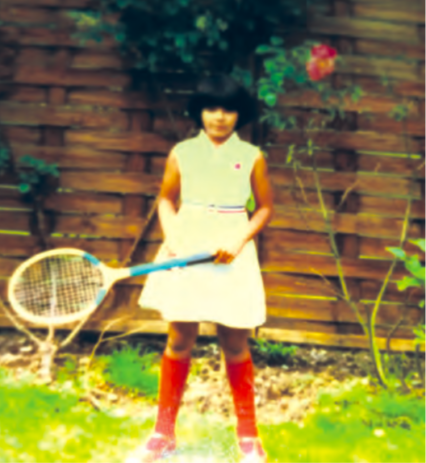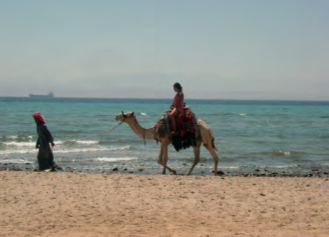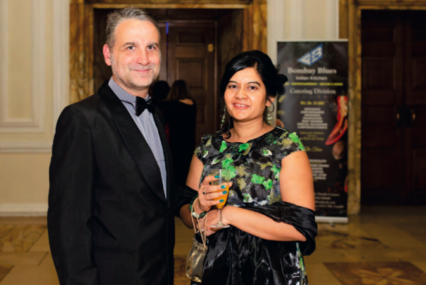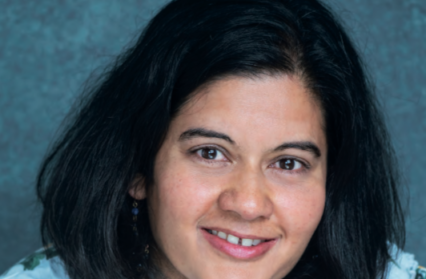Wales Arts Review continues their celebration of Parthian’s Seventy Years of Struggle and Achievement: Life Stories of Ethnic Minority Women Living in Wales with an essay from Diana De a senior lecturer in adult nursing. Here, De talks on her personal journey with nursing and her mission to encourage greater diversity within healthcare and nursing.
People sometimes find it difficult to talk about culture for fear of offending, but I think it is important to encourage conversations around difference and diversity. Culture isn’t just about ethnicity or being a different skin colour. It’s more interesting, fluid and highly complex and about what we’re born into and what moulds us into the individuals who we later become.
I was born in Edinburgh in 1974. I’m the eldest child and was named after the singer Diana Ross, and my younger sister after Debbie Harry, from Blondie. My parents are of Indian heritage, but broke tradition and had a love marriage rather than an arranged one. They came to the UK in the 1960s, and I spent most of my childhood in Carlisle, Cumbria, near the Lake District.
My parents were quite liberal with us growing up, but there was one tradition that they followed which had a real impact on me. Boys and girls of Indian descent normally get their head shaved at a young age to remove their invitro baby hair. As a child, I had lovely, thick, curly hair, and my parents were reluctant to do this to me. They eventually caved in after my grandparents visited from India and persuaded them. So, at the age of five, my head was shaved, and for much of that year, I looked like a mini Sinead O’Connor. We’d also moved to a new house around that time, and I remember being mistaken by the local kids as the ‘new boy from number 20’.

Typically, in Asian culture, boys are favoured over girls, but my sister and I had a lot of freedom and fun, and I enjoyed my childhood. We lived on a quiet cul-de-sac in a corner house with a large garden, a Sheltie dog, and a welcoming open house approach. We always had visitors, and all the kids used to come over to our place to play. I would be out all day with my friends, climbing trees, throwing balls, walking on stilts and skateboarding. I love natural history, and we lived near a local wood, so I’d go off to the countryside and ride my bike for miles. I also read a great deal, and my sister and I were privileged to have gone on plenty of overseas family holidays.
I have fond childhood memories of aromatic cooking smells drifting through our house, but back then, my sister and I used to complain and demanded English food, such as fish fingers, like all our friends used to eat. Nowadays, I greatly miss Mum’s Indian dishes and have grown up to appreciate just how good a cook she is.
My father was an orthopaedic specialist from a long line of doctors, his father having been nominated for a Nobel Prize for advancements in medicine and the treatment of cholera. My dad worked very long hours, and much of his evenings were spent on call, but he found time to do things like take me to watch the hospital fireworks and give out presents to the patients on Christmas Day. My mother was a nurse who predominantly worked night shifts to accommodate my father’s rota. They worked hard and have both been strong positive role models.
Growing up, I was the only brown skinned girl in my school, so I stood out and was sometimes self-conscious about being different. I recall being anxious around certain boys who would call me names, and harassment was practically a part of my everyday life. However, as I grew up, being different became a positive thing with people becoming more interested in my family origins. As an adult, I’ve never felt that being female or labelled BAME has ever stopped me from achieving anything professionally or personally. My mum also maintained that race or colour would not be factors in either of her girls’ success. If we worked hard, it would pay off, and we would succeed based on our merit. If, however, we didn’t achieve, we’d simply have to try again. I personally view Britain and British people to be relatively tolerant.
When I left school, I didn’t really know what I wanted to be. I went through phases where I wanted to be a newsreader or an air hostess. Eventually, my parents suggested nursing and getting a job helping at the local infirmary, and I found that I liked it. In 1993, I went to study nursing at Northumbria University in Newcastle. Although there weren’t many people like me in my student nurse cohort, the bigger northern city was much more multicultural than I’d been used to. Once I completed my training, I worked in general medicine and cardiology before I went on to obtain my degree. I then decided to change to intensive care nursing, which became my speciality. I revelled in this highly charged environment and felt supported by the camaraderie I shared with my team.
After eight fun-filled years in Newcastle, in 2000, I decided to go to Australia for a year. I obtained a Young Person’s working visa and took a chance to go there without a job lined up. Luckily, I managed to find nursing jobs, including one in a critical care unit in New South Wales. I attended the Sydney Olympics, and the same year, on my birthday, I met and fell in love with an Aussie called Jon, a computer scientist living in Melbourne. When my visa expired the following year, I returned to Newcastle somewhat heartbroken. Nevertheless, our long distance relationship continued.
Jon eventually joined me in the UK in 2002 and took up a job at Cardiff University, while I found work locally at the University Hospital Wales in their critical care unit. Part of my role was to mentor student nurses, while I also took on some lunchtime teaching sessions for fellow staff members. At the time, some of my clinical colleagues and course tutors suggested I consider a lecturing role, and, as luck would have it, an academic job came up at the University of Glamorgan (now the University of South Wales) to teach Nurse Education. Although it was only a one year contract, they decided to keep me on afterwards. Jon and I moved from Cardiff to the Welsh Valleys, so I’d have less of a commute, and it was only there that, as a mixed -race couple, we struggled to settle or feel we belonged. Our form of escapism was to travel extensively, which included the pleasure of seeing many rare animals in the wild.

We got married in 2005, and our wedding took place in a beautiful setting in the Lake District. I was struck by the diversity of our guests, as people had travelled from far and wide to be there with us. Our honeymoon was a round the world trip, which included another wedding celebration in Jon’s mother’s beautiful rainforest back garden in Australia.
Just before we got married, I had obtained a prestigious travel scholarship from the Florence Nightingale Foundation to research sickle cell disorders in Jamaica and Cuba and continued this work in America the following year, courtesy of the Welsh Intensive Care Society. I remember presenting my scholarship findings in London, and I think I was the only ‘melanin enriched’ girl that got up on stage. I wanted this to change, so I became proactive in encouraging more nurses like me from BAME backgrounds to apply for these opportunities. I worked with the Foundation and Chief Nursing Officer for Wales to bolster more interest. In 2006, I was subsequently honoured to be asked to ‘carry the lamp’ at the annual Florence Nightingale commemoration service. Being in the spotlight in front of 2,000 people at Westminster Abbey was daunting but one of my proudest achievements. The occasion was made even more special, as my parents were there, my mum having just retired from the NHS after 40 years, so I felt as though I was continuing the nursing journey for her.
Around this time, I gave birth to my first child. We moved back to Cardiff, and eighteen months later, our son came along. He was born with a hole in the heart and required open heart surgery before he was one year old. This was an extremely challenging time for us as a family, but he recovered brilliantly. All my children are doing well. My eldest daughter is a flautist, like my sister, and dances classical Indian dancing with grace. My son is now eleven and is a healthy, active, quick witted boy who’s into football, gaming and music. Just after my 40th birthday, we had our third child. She is delightful and sassy and has been a wonderful addition to our family.
In 2008, I decided to undertake a Master’s degree. I studied equality and diversity and tailored my dissertation to the topic of improving pedagogy around internationalisation. I was pleased to attain a Distinction. I also completed my postgrad teaching certificate and, in 2016, secured a permanent teaching position at the School of Healthcare Sciences at Cardiff University. I enjoy teaching, as it allows me to increase awareness of important health issues related to cultural safety by raising the profile of haemoglobinopathy disorders and safeguarding vulnerable people linked to traditional harmful practices, like female genital mutilation, honour based violence and modern day slavery. These topics can sometimes be ethnocentrically perceived, but my campaign is for these to be seen from more of a public health and protection viewpoint.

Through my teaching, I came to be involved with the EMWWAA mentorship programme, and in 2019, I was an EMWWAA finalist for contributions made to STEM learning. The nomination was linked to my efforts in promoting healthcare education within local primary schools. Every year, I love going to speak to school children and feeding off their enthusiasm to learn. I’ve since extended my endeavours to local community and secondary school pupils through the Grangetown and Cathays High School Project, which aims to give sixth formers an insight into healthcare careers and is an opportunity to present myself as a relatable role model. As a woman of colour, I’d like to influence more people like me to consider nursing or healthcare as worthy career options, and I will continue to work tirelessly to reduce race related stigma and barriers.
Change is occurring, and nowadays, I see more male students in my classes, as well as those from BAME backgrounds. I’m currently working with colleagues to develop a podcast that aims to help encourage more people from underrepresented groups into the profession or to progress further in their careers.
On reflection, nursing was the right choice for me, and I still enjoy what I do. I’ve helped many graduate students become fully fledged nurses and supported international nurses to register in the UK and those who’ve had a break from nursing to return back to clinical practice.
For me, culture and diversity are worth celebrating, and I think it’s so important for youngsters today to learn about their heritage. Many different cultural aspects have shaped me into a global citizen, like travel, music, food and literature, as well as my work and my family. I enjoy walking and painting in my free time, as well as cooking and sharing food with friends. Although I regret not sticking with viola lessons or teaching my kids to be fluent in Bengali, I can reflect upon most of my life experiences with positivity. It’s fantastic to hear that my Vegemite-infused children tell me I’m a role model to them. To me, they are far more self-assured than I was at their age and don’t recognise differences in culture, language or skin colour as adversities. I hope, as parents, we’ve supported their sense of self-worth and respect for others, along with the importance of family and trying to remain healthy and happy in all the choices they make in their lives.
My advice is to focus, but remain open to new ideas, work hard, and believe that anything can be possible. Life is all about celebrating and maintaining a balance and enjoying whatever you do. I hope my story helps to influence and encourage others in some meaningful way.
Seventy Years of Struggle and Achievement is available via Parthian.












